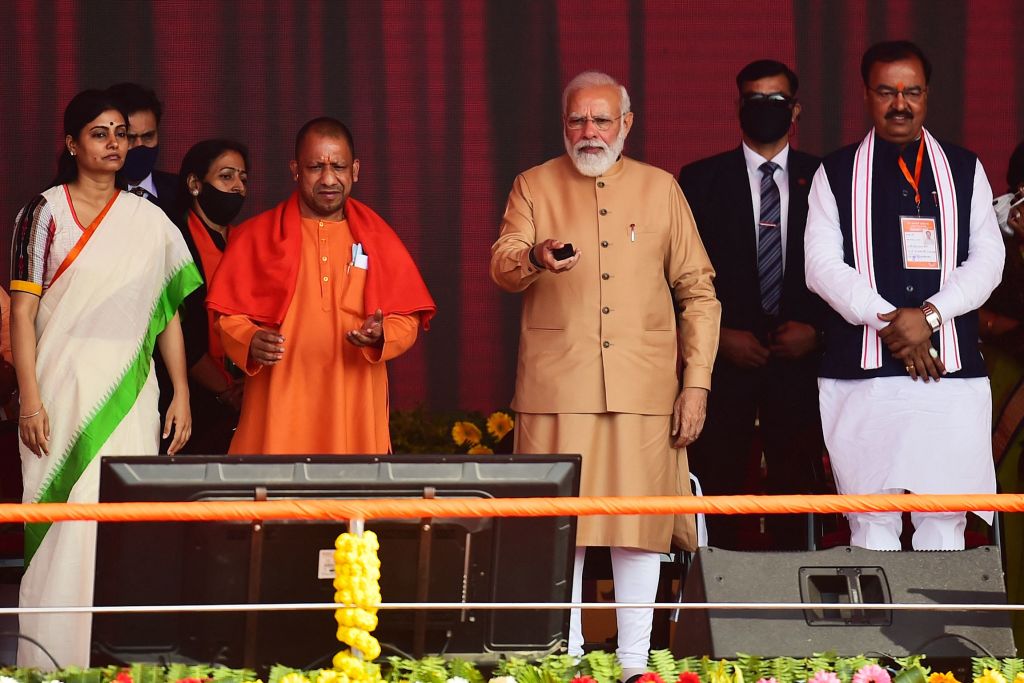- Saturday, July 27, 2024

By: Shubham Ghosh
Yogi Adityanath, the monk chief minister of the northern Indian state of Uttar Pradesh is often seen as a poster boy of Hindutva and is expected to be the next big thing for the country’s ruling Bharatiya Janata Party (BJP) after prime minister Narendra Modi. His administration has often been accused by the opposition as one which never thinks twice when it comes to unleashing bulldozers against members of the minor Muslim community.
But on the ground, the saffron leadership in the state is also busy honing another strategy which its secular opposition might find difficult to digest: wooing the dominant Muslim castes ahead of the 2024 general elections.
According to India Today, a series of events have been scheduled in the predominantly Muslim constituencies in western UP which has a number of communally sensitive areas.
In April, for instance, ‘Sneh Milan: Ek Desh, Ek DNA Sammelan’ (one nation, one DNA gathering) will be held in Muzaffarnagar which had witnessed devastating riots ahead of the 2014 general elections. The event will focus on various Muslim communities such as Muslim Jats, Muslim Rajputs, Muslim Tyagis and Muslim Gurjars, the India Today report added.
Explaining the BJP’s minority plan in the state, Kunwar Basit Ali, the chief of BJP’s Minority Morcha (minority front) in Uttar Pradesh, told the news outlet that the abovementioned Muslim castes share rapport with the Hindus in the state’s western part and have sizeable numbers in the region. Ali said there are almost 200,000-250,000 Muslims belonging to the four caste groups in every constituency where the minority community is dominant and the BJP is targeting them.
The official also said that in the planned events, the ruling party will urge the Muslims to bank of Hindu leaders from the Jat, Gurjar, Tyagi and Rajput communities, according to the India Today report. BJP leaders who are popular among these caste groups have also been invited, including defence minister and former UP chief minister Rajnath Singh who is a Thakur Rajput; BJP state chief Bhupendra Chaudhary and junior central minister Sanjeev Balyan who are Jats and state minister Somendra Tomar — a Gurjar.
According to one senior BJP official, Muzaffarnagar was chosen for the first community event since it is the land of Chaudhary Charan Singh, former India prime minister and a towering Jat leader who was the first to experiment the idea of Jat-Muslim togetherness.
Besides, sources in the BJP also said that ‘qaumi chaupals’ will be held in villages like ‘gram chaupals’ that were held before the state elections last year. Party workers will reach out to the minority beneficiaries of both central and state-government schemes at those workshops.
While the opposition parties in the state have accused the BJP of putting up a fake show of reaching out to the Muslims and claimed that their own votebank among the community will not be affected, analysts believe the saffron party has been successful in wooing the Pasmanda Muslim community.
Shilp Shikha Singh, an assistant professor at the Giri Institute of Development Studies in Lucknow, told India Today that schemes like one district, one product and beneficiary politics have helped the BJP’s image among lower-class Muslims. She said upper-class Muslims are unlikely to join its camp.
Pasmanda Muslims refer to an umbrella term for backward, Dalit and tribal Muslims.
The BJP, which has been doing well in every election in UP since the 2014 general polls, had swept all 14 Muslim-dominated seats in western UP. The opposition combine of Samajwadi Party and Bahujan Samaj Party wrested six of them in 2019.
UP, India’s most populous state, sends 80 lawmakers to the Lok Sabha or Lower House of the Indian parliament and plays a big role in defining the government in New Delhi.